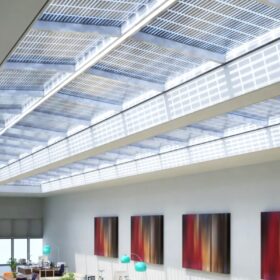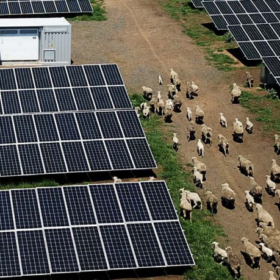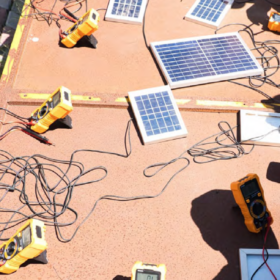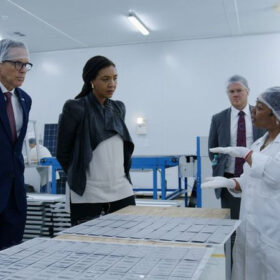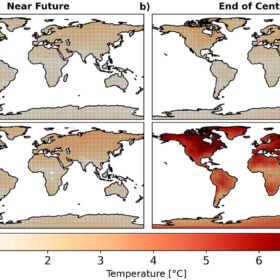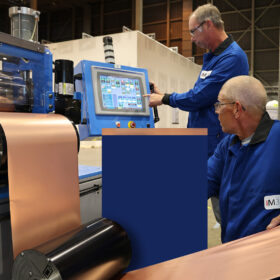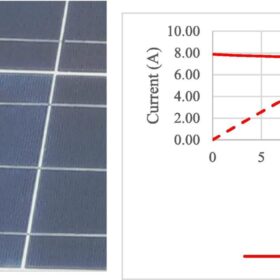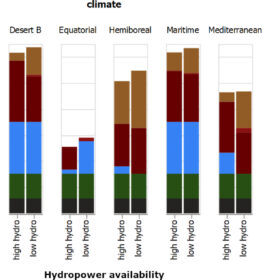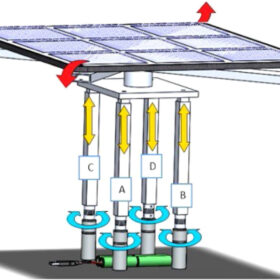The best tilt angle to improve PV system performance on low-income housing
Researchers have demonstrated that the theoretical optimal tilt for rooftop solar energy production in low-cost buildings in Nigeria is approximately 5.67°. Their modeling suggests to adopt south-facing roofs for PV generation in the southern hemisphere.
World Bank build marks debut of ClearVue solar skylights
Western Australia-headquartered ClearVue Technologies has signed its first commercial order for Africa with its solar energy-generating skylights to be integrated into a new World Bank building in Nigeria.
Agrivoltaics improve agricultural yield in arid regions: UTAS global study
University of Tasmania researchers have examined the benefits, or not, of agrivoltaic systems in three countries and found the technology can most improve agricultural productivity in arid and semi-arid regions.
Off-grid solar appliance repair training a must for remote communities: report
An Australian Research Council funded report co-authored by Sydney-based University of New South Wales and United Kingdom-headquartered charity SolarAid says the off-grid solar sector should do more to enhance their product repair initiatives.
Weekend Read: Blackouts trigger a PV pivot
Decades of mismanagement have eroded trust in South Africa’s state-owned energy utility, Eskom. Last year, households and businesses suffered daily blackouts of up to 10 hours, or even longer. Solar and battery energy storage are booming but a domestic PV manufacturing industry has yet to materialize.
Solar productivity negatively impacted by emissions and aerosols, study finds
A study by engineers at UNSW, published in the Renewable Energy journal, shows that aerosols and greenhouse gas emissions reduce the productivity of photovoltaic installations and that this differs according to the global region.
Geelong battery cell gigafactory plans leapfrogged
Recharge Industries, which had hoped to begin construction on its Geelong lithium-ion gigafactory this year, is reportedly refocusing its manpower on British endeavours. Despite Australia’s growing rhetoric around capturing more of the battery value chain, companies in the space are turning attention overseas.
Research shows polycrystalline panels from 11 different producers degrade more than warranty rate
A research group in Ghana has conducted a series of tests to assess the performance of polycrystalline solar modules in PV systems operating in their home country for at least 5 years. They found that the vast majority of the panels may ‘fail’ before 20 years in operation under outdoor conditions.
Electrolysis cost-efficient in all climates, says Finnish team
Researchers at the VTT Technical Research Centre of Finland said that chemical energy storages were needed for short and long-term balancing in every climate region, especially in the northern climates. Meanwhile, companies are moving forward with their plans to produce hydrogen in Namibia and Morocco.
Low-cost, portable sun-tracker for offgrid solar
Mauritian researchers have developed a solar tracker prototype that increases current by around 37%. The device uses a simplified and mechanical tracking system.

